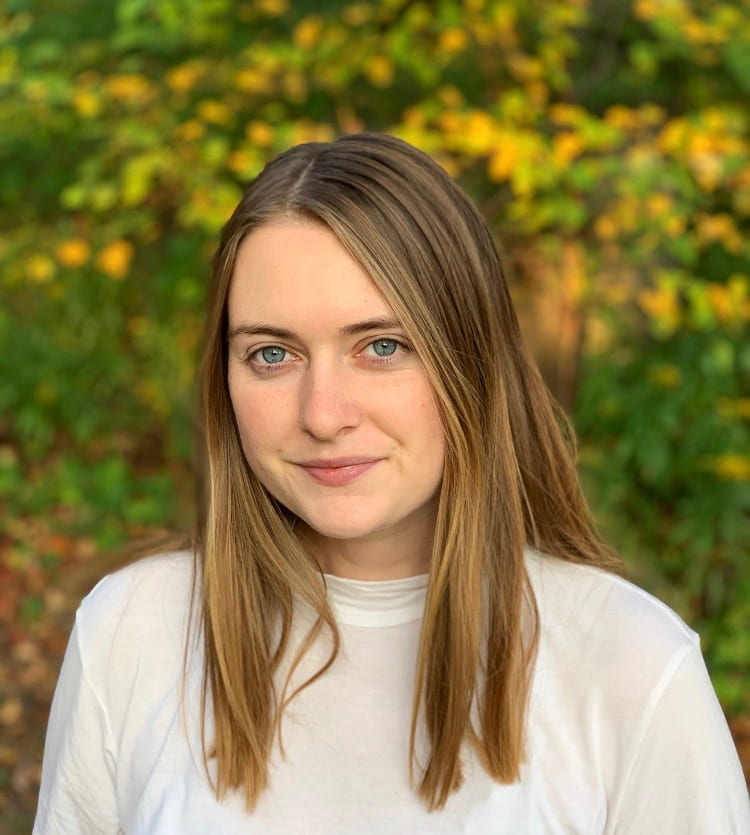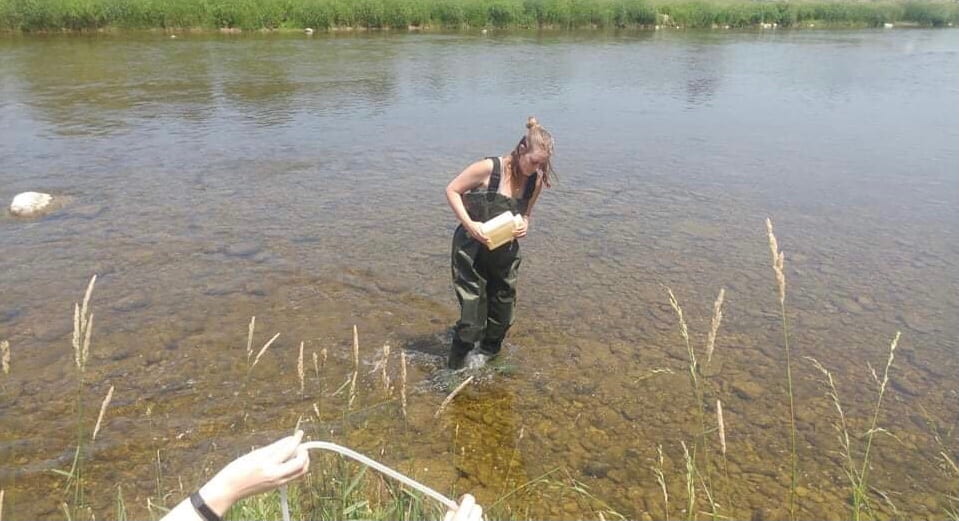One Health brings together graduate student’s passions

Before starting her graduate degree, Master’s student Jamie Goltz thought she had to choose between working in the human health sector or the environmental health sector. It wasn’t until she heard about One Health that she realized she could – and should – do both.
Goltz graduated from her undergraduate degree in biochemistry and microbiology at the University of Guelph still trying to decide which passion to pursue. She spent a year working at an environmental microbiology lab on campus and volunteered in a genetics lab at Mount Sinai hospital in Toronto, giving her experience in two different domains of health: environmental and human.
Faced with choosing between the two, she attended a U of G conference where she was introduced to the concept of One Health – that is, that human, animal, and environmental health are interconnected.
Everything aligned in that moment.
“I struggled a lot with making a choice coming out of my undergrad,” says Goltz. “I always thought, ‘Well I want to save the world, but I also want to help people.’ I never thought someone could be doing it all at once until I heard about One Health.”
Enthralled by this new concept, Goltz reached out to One Health advocate and Population Medicine faculty member, Dr. Jane Parmley, to inquire about graduate opportunities in the area. It was perfect timing; the university was just about to launch the collaborative specialization in One Health. Designed for graduate students, it’s an opportunity to incorporate One Health into their projects and study with students in an assortment of disciplines.
Goltz started her Master’s in Epidemiology in January 2020 when the collaborative specialization was first offered. Working under Dr. Parmley, she is now reviewing antimicrobial resistance (AMR) in humans and potential AMR infection pathways.

Like many of the problems One Health aims to tackle, AMR is highly complex. Animal and environmental health both contribute to and are impacted by AMR in people. Researchers have been working for decades to understand how to stop strains of bacteria or pathogens from mutating to become more resistant.
Goltz’s work will complement these efforts as she works to estimate resistant bacteria exposure in various pathways, such as food production or health care visits. One Health is integral to this. For example, examining the food pathway requires consideration of soil, crop and livestock health. Farm animals with resistant bacterial infections could have become infected from a host of different sources like the soil or another animal. And if the animals are infected, they pose a risk to meat consumers down the line.
Beyond the conceptual applications One Health has in her work, Goltz also praises how it fosters collaboration and input from multiple disciplines. She feels better prepared to seek help from others who are experts in fields with which she’s unfamiliar.
When she looks to the future, Goltz sees herself working in a diverse research setting where her expertise is one piece of the multidisciplinary puzzle needed to address complex health problems.
“Where I fit into other projects has become clearer to me,” Goltz says, “I’m excited now about how much I can bring to projects and also how much more there is to learn.”
Contact: jgoltz@uoguelph.ca
Update: Jamie Goltz graduated with her M.Sc., with a Collaborative Specialization in One Health, in 2022.
Article by Anna McMenemy
Listen to Master’s student Jamie Goltz talk about how her experience in the Collaborative Specialization in One Health has opened her eyes to the broader impacts of her research:



